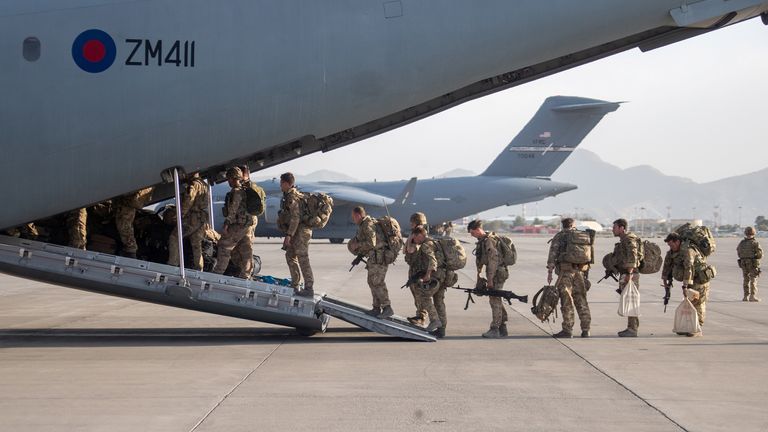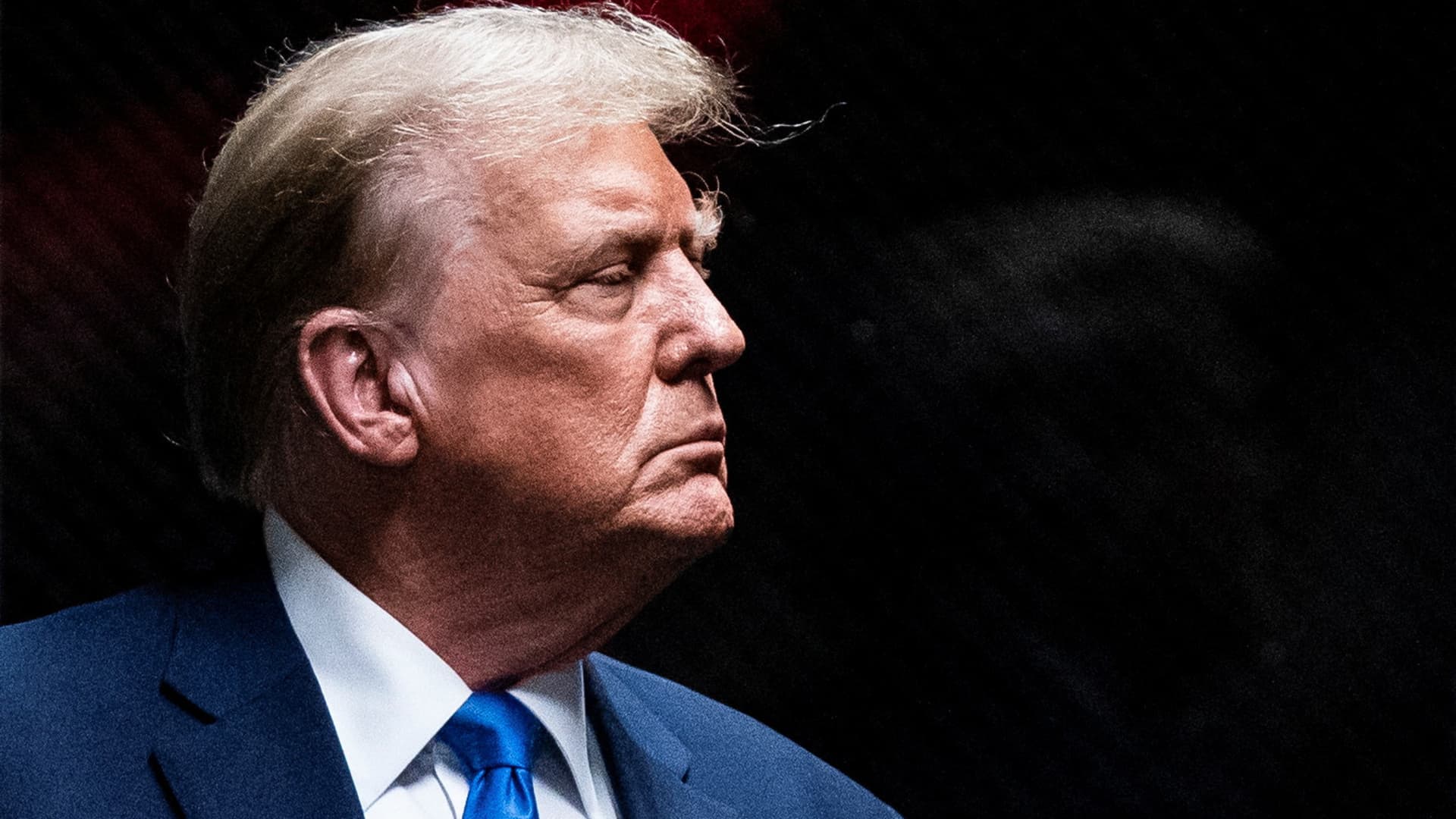Foreign Secretary Dominic Raab has admitted it will be a “challenge” for British nationals left in Afghanistan to now find a route to the UK.
Speaking to Sky News, Mr Raab said the number of British nationals who had not been taken as part of the now-ended UK evacuation effort was in the “low hundreds”.
Acknowledging it was “unclear” when the airport in Afghanistan‘s capital Kabul would again be operating – following this weekend’s pullout of US and UK troops – Mr Raab advised those still seeking to leave the country they could find a route to the UK via neighbouring countries.
Latest live updates from Afghanistan
The foreign secretary said, since April, more than 17,000 British nationals, Afghans who worked with the UK, and other vulnerable people had been evacuated from the country.
But, of those UK nationals who were still left in Afghanistan, Mr Raab admitted there were “low hundreds” remaining in the country.
“Most of those are difficult cases where it’s not clear around eligibility because they’re undocumented,” he said.
“We’ve now put in place the arrangements with third countries, or we’re putting them in place.
“I’ve spoken to some of the key third countries, so have other ministers, to make sure we can have a workable route through for those outstanding cases.”
Asked whether his advice for those UK nationals still in Afghanistan would be for them to head across one of the country’s borders, Mr Raab added: “It depends if they are eligible or not and, of course, we’re in contact with them to be able to establish that.
“That’s made more difficult because we don’t have the base at the airport.
“Certainly if they’re eligible British nationals, there are embassies in those third countries – whether it’s Pakistan or one of the stans.”
Pressed on how British nationals in Afghanistan might reach one of Afghanistan’s borders, now the country is under Taliban control, Mr Raab admitted it would be a “challenge”.
But the foreign secretary said the UK would hold the Taliban to their “explicit assurances” – as well as the terms of a UN Security Council resolution passed on Monday – that they “must allow safe passage not just for our nationals but other Afghans, particularly vulnerable ones, who wish to leave”.
The Taliban are now in control of Kabul’s airport following the final withdrawal of Western troops in recent days. And Mr Raab said there was “a degree of scepticism” about the group’s “capacity to run that airport safely”.
“We know that some countries are trying to help them with that effectively functional capacity,” he said.
“Of course the previous government had air traffic controllers and things like that. But at what stage that will be ready and viable for international travel, at this point, is unclear.”
He added: “What support they get and how quickly they can then salvage a functional operational capacity remains to be seen.
“Which is why we’re making sure – working with those third countries, working with our embassies – that, actually, if people can get to the border, we can process those cases.”
Mr Raab also rejected claims that a UK request may have contributed to the risk of a terror attack at Kabul airport.
According to the Politico website, the US decided to keep Abbey Gate at Kabul airport open longer in order to allow the UK to continue evacuating British personnel.
The gate was subsequently the location of a suicide bomb attack for which ISIS-K, an offshoot of Islamic State, have been held responsible.
But Mr Raab said it was “just not true” that the UK was “pushing to leave the gate open”.
“We coordinate very closely with the US, in particular around the ISIS-K threat that we anticipated – although tragically were not able to prevent,” he told Sky News.
“It is certainly right to say we got our civilian staff out of the processing centre by Abbey Gate.
“But it is just not true to suggest, other than securing our civilian staff inside the airport, that we were pushing to leave the gate open.
“In fact, and let me just be clear about this, we were issuing changes of travel advice before the bomb attack took place and saying to people in the crowd, about which I was particularly concerned, that certainly UK nationals and anyone else should leave because of the risk.”






